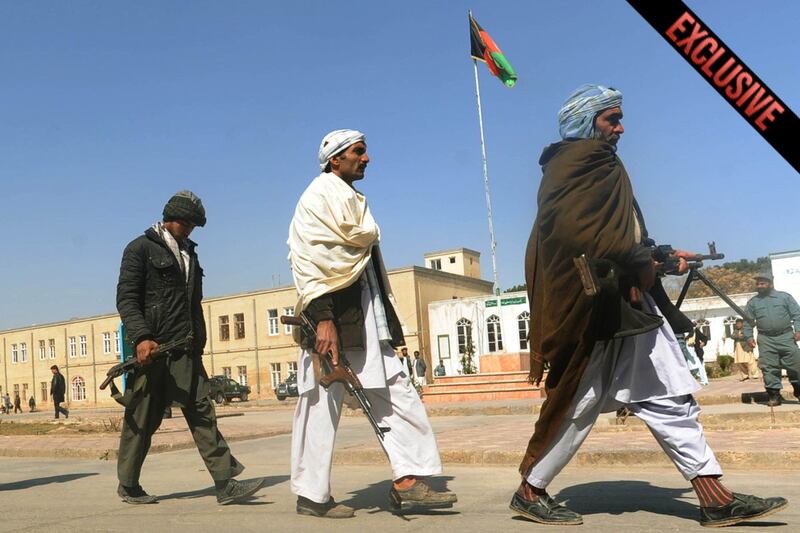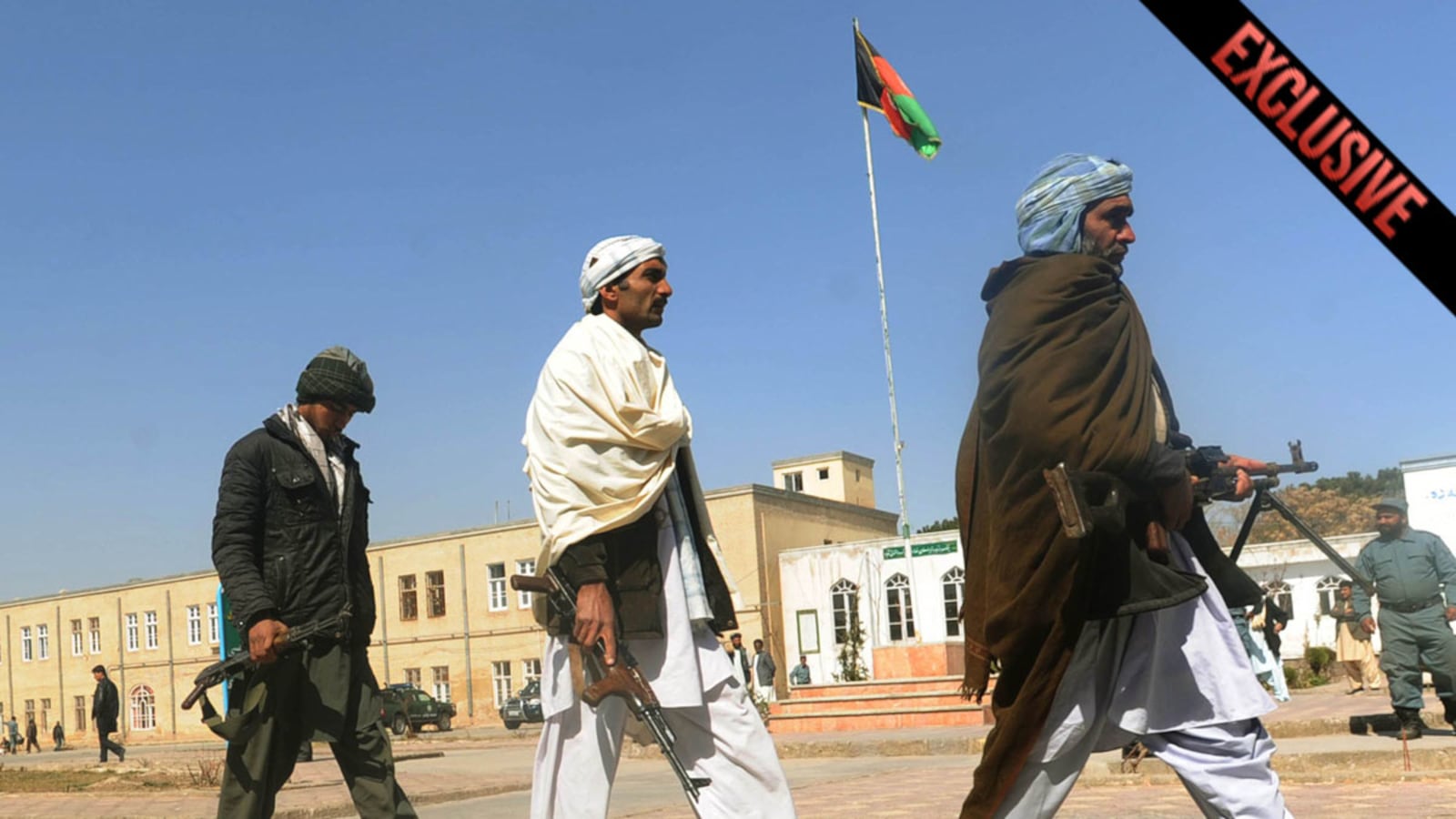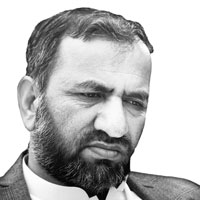The Taliban’s internal disputes over whether to talk peace are turning the Afghan insurgency against its own, threatening to undermine the guerrillas’ previously unshakable unity. Last week the military committee of the Taliban’s ruling body, the Quetta Shura, ordered the arrest of Mullah Ahad Agha, a high-ranking commander in southern Zabul province, and Mullah Ghulam Hassan, a similarly important commander in Ghazni province who served as deputy intelligence minister when Taliban leader Mullah Mohammad Omar was in power.
Their purported crime: unauthorized contacts with representatives of the High Peace Council. The Taliban’s top leadership has never hid its hatred of the council, which was established by President Hamid Karzai to contact the Taliban and bring about peace negotiations. Last September a Taliban suicide bomber assassinated Burhanuddin Rabbani, the council’s chief, in his own home.
The insurgency’s leaders have long insisted they’re not negotiating with Karzai, a man they denounce as an “American stooge.” In fact, when the rebels broke off their preliminary talks with the U.S. in the Gulf state of Qatar last week, one of the reasons they cited was that the Americans were supposedly spreading false rumors that the Taliban had also entered into negotiations with Karzai’s representatives. In fact, however, at least some Taliban leaders do seem to be breaking ranks and talking with their Afghan enemies.
Earlier this month three senior religious clerics from the High Peace Council’s Kandahar provincial branch arranged to meet Agha, Hassan, and several other commanders in the southwestern Pakistani border city of Quetta to explore the possibilities of more formal talks. Soon after their discussions, Agha and Hassan were arrested by Taliban enforcers. Other commanders avoided arrest by going into hiding. After reports of the meeting appeared in the Afghan media, the Taliban’s spokesman denied that any such meeting had taken place. But Taliban sources tell the Daily Beast there’s no doubt that the talks did take place.

Agha and Hassan seem to be in serious trouble. Taliban sources say the two are being charged not only with talking to the enemy but with accepting payoffs to do so, either from NATO or from Karzai himself. According to a well-placed Taliban source in Quetta, Hassan is telling his interrogators that he had permission to talk to the Kandahar elders from no less than the notorious commander Mullah Ismael, a member and former head of the military council. Ismael made millions for the insurgency through ransom kidnappings and payoffs from Afghan security contractors who purchased safe passage for coalition supply convoys through Taliban-controlled territory. He emphatically denies the accusation that he approved the Quetta meeting.
Nevertheless, he seems to be under a cloud of suspicion, according to the source in Quetta–which could further divide the leadership. “This is the first time there has been such a serious violation of the once solid discipline among the Taliban,” a former senior Taliban minister tells the Daily Beast. “This case has raised concern among the top leaders about the internal trust and unity that the Taliban has historically had,” adds Zabihullah, a senior Taliban official.
This apparent breach of discipline couldn’t come at a worse time for the insurgents. The two-year-old U.S. military surge has already seriously weakened them in the south and the north. And now the Taliban’s top commanders are supposed to be busy drawing up battle plans and organizing their forces for the upcoming fighting season. This disunity can only hurt those preparations.
Senior Taliban sources worry that the command-level upheaval will further reduce the guerrillas’ resolve to continue the fight. There was already considerable dissatisfaction among the rank and file against the leadership’s negotiations with the Americans. “Many Taliban are ambivalent, hesitant and confused over the peace talks,” says a former Taliban official who is the headmaster of a militant madrassa along the border with Pakistan. “That includes high-ranking commanders. They may be reasoning: ‘Why die, if some Taliban are talking peace with the U.S. and others with the Afghan government?’”
After a decade of vows that the jihad would never end until total victory and the imposition of Taliban-style Sharia law throughout Afghanistan, the unheralded peace moves have just about paralyzed the insurgency’s ranks with a sense of betrayal and uncertainty. Even usually hot-blooded madrassa students may be having second thoughts about joining the fight. The madrassa’s headmaster says many of his 80 students may not follow orders to cross the border and fight once the school term ends early next month. “Maybe only 50 percent will go,” he says.
Some Taliban officials are speculating that the disarray surrounding the detention of Agha and Hassan could have been one of the unspoken but underlying reasons behind Mullah Omar’s breaking off the Qatar talks with the Americans. “He is trying to reestablish a degree of discipline, unity and common purpose,” says a former Taliban intelligence officer who remains close to the leadership. “Peace talks were becoming too divisive an issue.” That would be very bad news for anyone who yearns for an end to the war.







